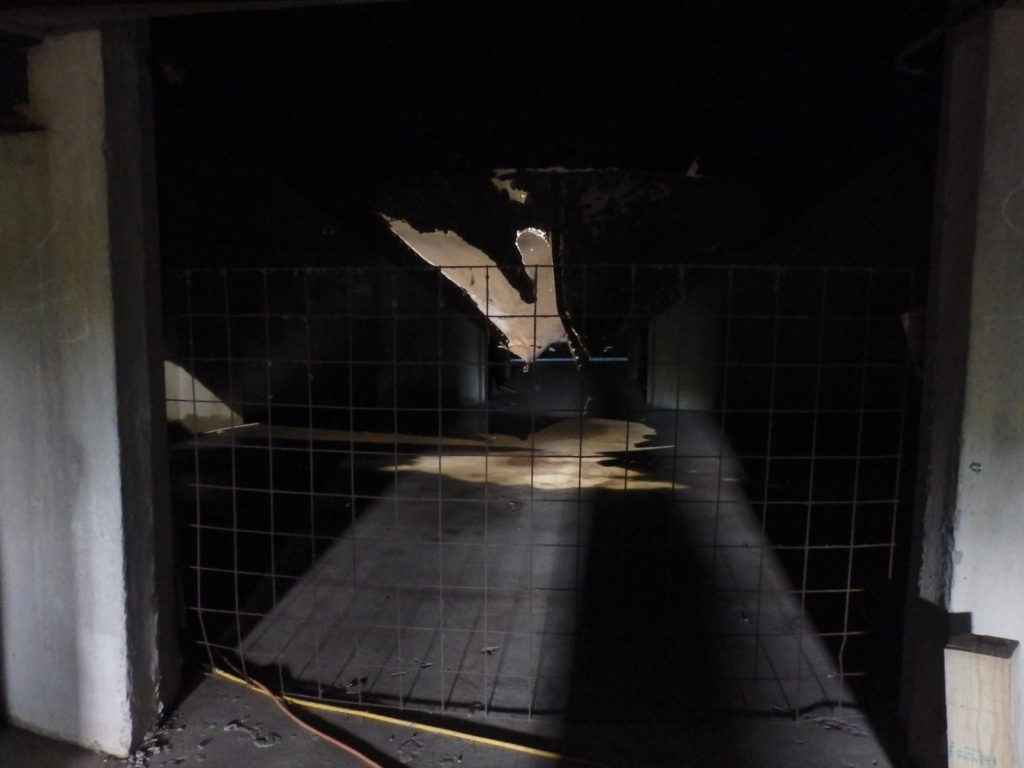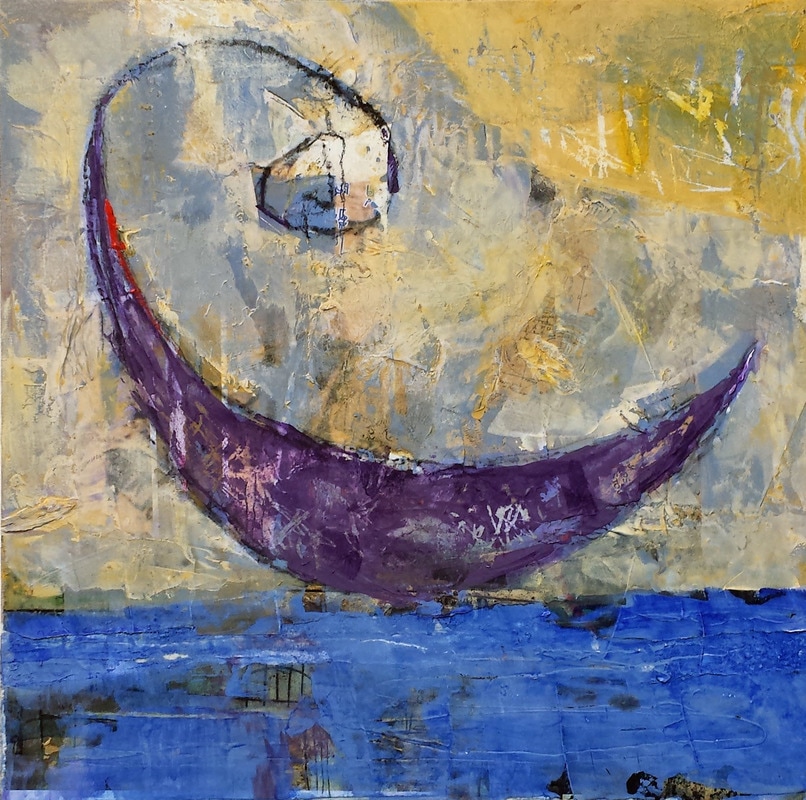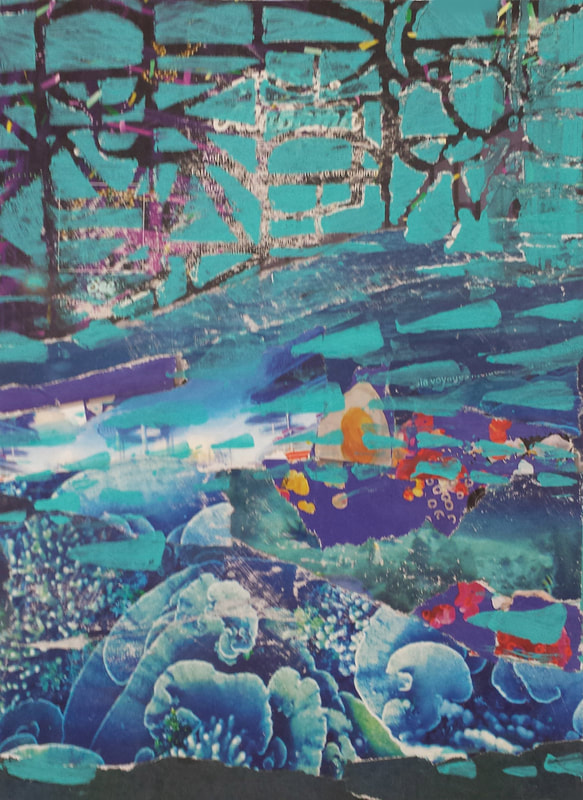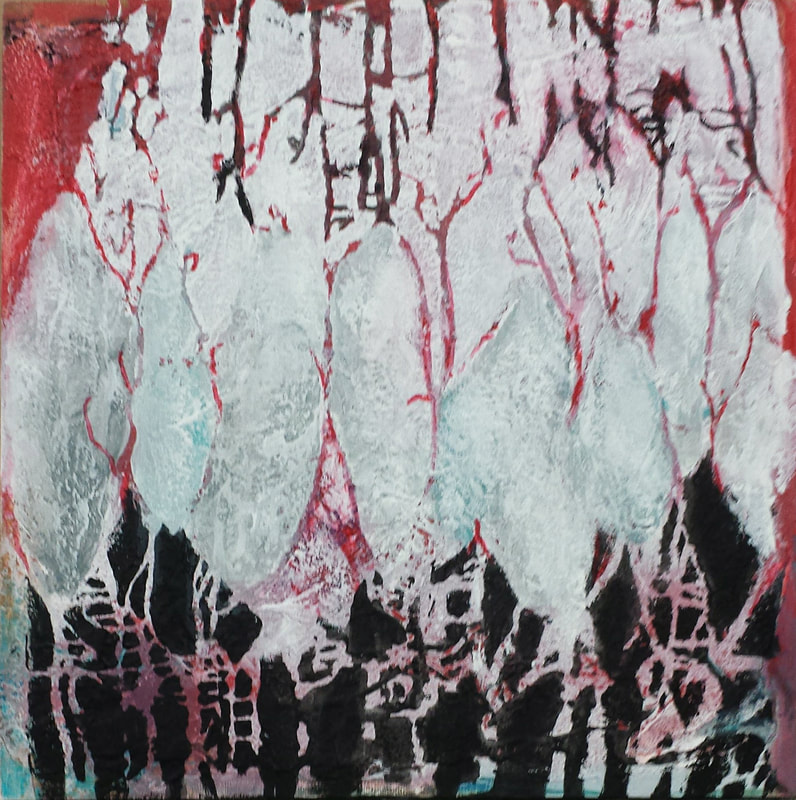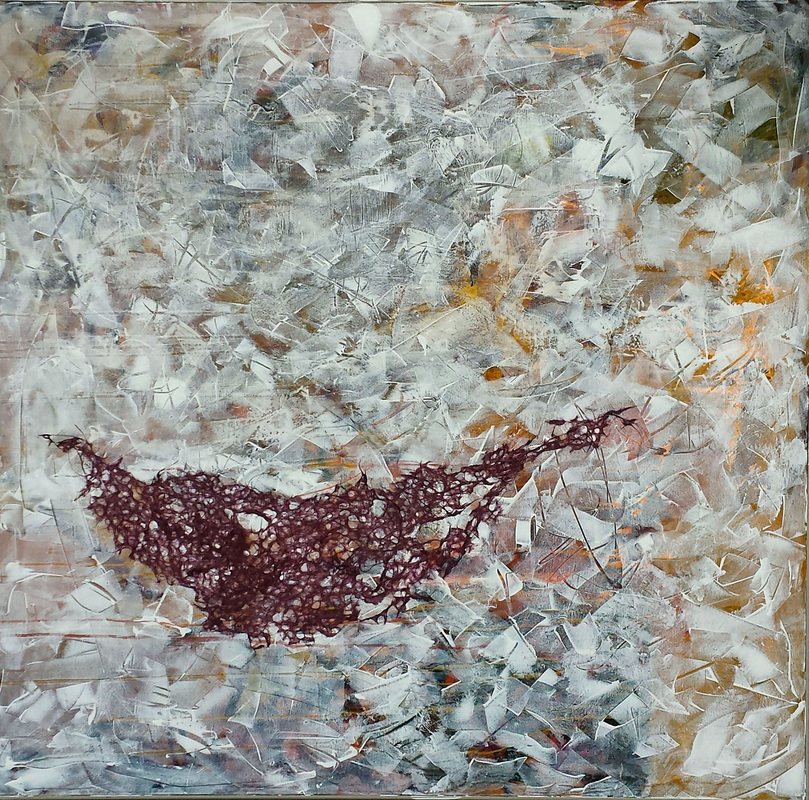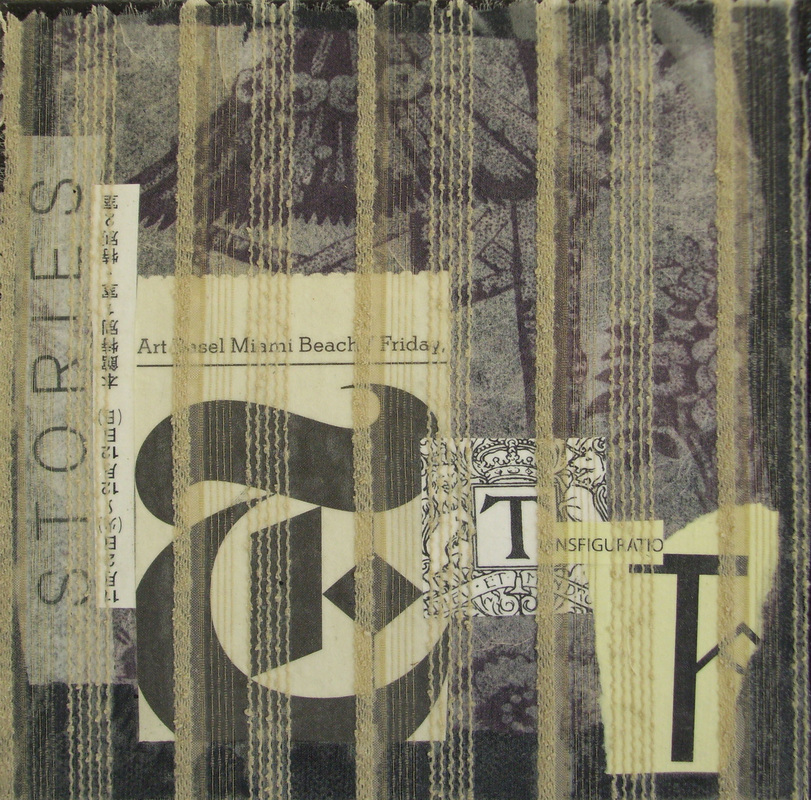
“Witness” by Kathy O’Meara.
One summer in Queens, two strangers set my hair on fire.
It was thick then but also fine and soft, a baby’s hair, down to my butt.
I was thirteen.
Summer day camp, a younger boy I called “gosling” got a buzz cut.
Showed off muscles, skinny arms white-blond with soft down. Age nine.
He asked me, “What are you?”, then stayed, eyes following.
He’d press in close, without me touching him.
Where he lived, girls first were surprised, then bored by motherhood.
Those girls used formula, rested. Then calculated just how long
a baby could be left alone, the precise
Measures, milligrams, of white stuff they obtained to feed themselves, injecting, warm,
Transforming jagged into soft, pain into bland, blood into circles of gold light,
Caressing veins. Their not-so-secret formula, costly of time, hours, even days,
During which baby was a thing and not a set of eyes watching, alive, merging, learning.
Mainly a benign thing, cute and cuddly, to settle down, to put somewhere,
To be settled, when baby breaks its benign mask of sleep with raging cries
And eyes, watching, counting, needing. Measuring. Judging mothers for using formula.
My gosling’s mother was a heroin addict, and he was thin like her.
“White trash” the name other white people had called them in the projects, he said.
I said, shush
The ones I hate, who hate me: Never trash to me. Little gosling.
Out at Jones Beach, he swam to me, mocking my new and chubby breasts in my tight suit, but then when no one saw us, tried to burrow in.
He ducked under my dark mammy arm, blond fuzz of him hidden by my brown.
I was a thirteen-year-old mother then, in that water,
hair streaming behind me like an island madonna’s. In the Atlantic waves, anonymous,
I had to be his mother or his nanny, no one knew.
Except for him, who took for granted he was safe.
That I would never trade him for some secret stash, betray his hurt blue vivid eyes, pluck out his bird-wing eyelashes.
“Hey baby bird,” I’d said, letting him climb upon my back in deep water.
I swam to shore and sand, laughter and dark, to fall asleep, once he was safe and dry.
Hours later I woke up. The popping, breaking sounds of a bonfire.
Camp counselor, age nineteen or twenty, jonesing and stoned, rolled a hash joint narrower than a child’s finger,
lighted a small torch from the fire and carefully touched ends of my hair, incinerating princess curls, black whorls on sand, before I woke.
Screaming out, crying in fear, holding my head, I registered
White stranger holding his roach and smoking it,
While Gosling laughed and shouted, “Check how he burned that Hindoo bitch’s hair!
“He burned the trash.”
Chaya Bhuvaneswar‘s debut story collection, WHITE DANCING ELEPHANTS, is available for pre-order now at dzancbooks.org and at Amazon.com. She is a practicing physician and writer whose work has appeared in Narrative Magazine, Tin House, Michigan Quarterly Review The Awl, jellyfish review, aaduna and forthcoming in Litro Magazine and elsewhere, with new poetry in apt, Ellipsis, Former Cactus magazine and forthcoming in Hobart and Natural Bridge. Her poetry and prose juxtapose Hindu epics, other myths and histories, and the survival of sexual harassment and racialized sexual violence by diverse women of color. She recently received the Dzanc Books Short Story Collection Prize, a MacDowell Colony Fellowship, and a Henfield award for her writing. Her work received four Pushcart Prize anthology nominations this year. Follow her on Twitter at @chayab77 for upcoming readings and events.



